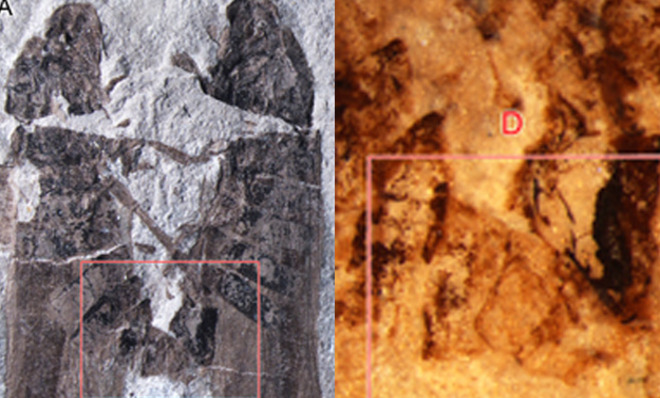Together forever: Two ancient insects fossilized during sex
165 million years of getting it on

A free daily email with the biggest news stories of the day – and the best features from TheWeek.com
You are now subscribed
Your newsletter sign-up was successful
They say nothing lasts forever.
Unless, that is, we're talking about a prehistoric love between a pair of fossilized froghopper bugs from the Middle Jurassic period, which were apparently too preoccupied with getting it on to notice their imminent doom.
You may not be too familiar with the cicada-esque froghopper, but the insect has been around for a very, very long time. Many folks may recognize them in their nymph stage, when they're commonly referred to as "spittlebugs" because of the frothy, spit-like residue they leave behind on plants.
The Week
Escape your echo chamber. Get the facts behind the news, plus analysis from multiple perspectives.

Sign up for The Week's Free Newsletters
From our morning news briefing to a weekly Good News Newsletter, get the best of The Week delivered directly to your inbox.
From our morning news briefing to a weekly Good News Newsletter, get the best of The Week delivered directly to your inbox.
A team of scientists, led by Shu Li of China's Capital Normal University, discovered this romantic rock specimen of two froghoppers bumping nether regions in northeastern China. The fossil is 165 million years old, making it the oldest portrait of sex on record. It is also one of the best preserved.
This isn't the first time paleontologists have unearthed such fossils. Brian Switek at National Geographic helpfully points out that "at least 33 examples of prehistoric insects [have been] caught in the act," with many preserved in amber. But it is certainly one of the most revealing, telling us a lot about how insect sex may have evolved — or not — over the course of many, many millennia.
Extant froghoppers, for example, copulate side-by-side. Their ancestors appear to be facing belly-to-belly, though Li makes it clear that the team "cannot rule out that they might have taken a side-by-side position when alive."
Aside from what's ostensibly a more intimate mating position, these ancient invertebrates bear a striking resemblance to today's bugs. Perhaps more importantly, so does their genitalia.
A free daily email with the biggest news stories of the day – and the best features from TheWeek.com
It appears, then, that froghoppers have been procreating pretty much the same way for a really long time. Perhaps some sex is so evolved it doesn't need much tweaking.
-
 Political cartoons for February 19
Political cartoons for February 19Cartoons Thursday’s political cartoons include a suspicious package, a piece of the cake, and more
-
 The Gallivant: style and charm steps from Camber Sands
The Gallivant: style and charm steps from Camber SandsThe Week Recommends Nestled behind the dunes, this luxury hotel is a great place to hunker down and get cosy
-
 The President’s Cake: ‘sweet tragedy’ about a little girl on a baking mission in Iraq
The President’s Cake: ‘sweet tragedy’ about a little girl on a baking mission in IraqThe Week Recommends Charming debut from Hasan Hadi is filled with ‘vivid characters’